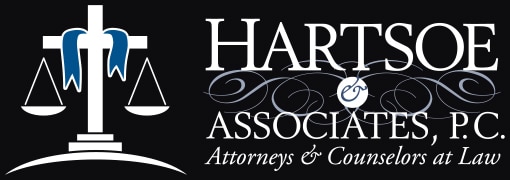Student Loans? New Tax Law Allows Employers to Match Your Loan Payments in 401(k)

A Silver Lining to the Burden of Student Loan Payments: Pre-Tax 401k Matching Contributions for Student Loan Borrowers.
A new federal law allowing employers to match employee student loan payments with pre-tax 401(k) contributions went into effect January 2024. As part of the changes to the retirement law, Secure 2.0, passed in 2019, allows employees with student loan obligations to make those payments and still be able to begin to save towards retirement if their employers opt to participate. This innovative approach aims to ease the burden of student debt while encouraging long-term financial planning and retirement savings. Hartsoe & Associates, P.C. can help your small business consider whether to offer such benefits, provide coaching on implementation, and help you with any other small business needs you may have.
The Intersection of Student Loans and Retirement Savings
Employers can now match employee student loan payments with pre-tax 401(k) and 403(b) contributions :
• Effective for plan years after December 31, 2023, 401(k) and 403(b) plan sponsors can provide employer-matching contributions based on an employee’s “qualified student loan payments.” A qualified student loan payment includes any payment made by an employee in repayment of a qualified higher education loan. The loan must be for the cost of attendance at an eligible educational institution (one that offers a certificated or degreed program), but can be for the benefit of the employee, their spouse, or their dependent.
• This initiative seeks to address the challenges faced by young professionals burdened by student debt who otherwise could not begin saving for retirement when they step into the workforce.
The Benefits for Employers
Stand out from the herd. Offering innovative benefits like student loan matching can make a company stand out in a competitive job market.
Employee retention. Because matching is optional for the employer, it can use the benefit to incentivize employee performance and retention.
Tax deductible. The contributions are tax deductible for the employer in the same way traditional matching payments to qualified plans are deductible.
The Benefits for Employees
Employees retain use of their net paycheck. Instead of using part of their paycheck to contribute to an employer-sponsored retirement plan AND to make student loan payments, an employee can make the student loan payment and get the benefit of tax-deferred additional compensation from their employer through the matching contributions.
Tax Savings. Just as with any other tax-deferred qualified retirement plan, by deferring the tax to be paid on that income into a period after retirement, it is assumed most employees would be subject to a lower tax rate, thus allowing them to keep more of their own money.
Increased Retirement Benefits. Beginning retirement savings at the earliest possible time greatly benefits employees as the money grows through investment over a longer period of time.
Implementation and Considerations
Employer Adoption
• Companies can choose to adopt this program based on their financial capacity and organizational goals. It is not mandatory.
• Employers may rely upon the employee’s written certification of the amount of the qualified student loan payments made each plan year.
• Matching contributions are treated the same as traditional matching contributions under the Plan’s terms, including the percentage of the match, eligibility to participate, and vesting rules (match frequency can vary however, however the employer chooses).
• Employees must have at least 90 days after the close of the plan year to claim the benefit.
• Matching student loan payments are treated as available to all participants for purposes of compliance with IRC 401(a)(4)’s nondiscrimination testing requirements.
• Student loan payments can be treated as elective deferrals for safe harbor plan rules.
• For Actual Deferral Percentage testing purposes, employers may separately test participants who receive matching contributions on account of qualified student loan payments.
Questions Remain
• Which loans qualify? If the loan was taken out when the employee was married to someone and they are a co-borrower, but the employee has since divorced that spouse, is that loan eligible (the education was for the former spouse, not the employee).
• Self-Certification requirements? There is nothing in the statute and the IRS has not issued guidelines as to what is required to be in the certification so that the employer can rely upon it. It is clear that the employer does not have to require an employee to provide copies of proof of payment of the loans, but do they have to require proof that the loan payments are actually qualified under the broad definitions of the Code?
• What happens if the match is allocated after the end of the year? Is this limited to active employees? What about safe harbor plans which cannot require service as of the last day of the plan year for employees receiving contributions?
• If employees have up to 90 days after the end of the plan year to claim this benefit, how do employers avoid excise tax for not meeting the deadline to correct Actual Contribution Percentage and ADP within 2.5 months of the end of the plan year?
• If a plan has separate vesting rules for safe harbor matching and a discretionary match with a vesting schedule, how would that work with student loan matching (requiring the same vesting rules)?
Conclusion
Running a small business is now more complex than ever, especially when employees begin to be part of the business structure. Understanding employee benefits, payroll taxes, wage and labor laws, workers’ compensation and other insurance, immigration issues related to employees, compensation of owners, etc.—all come with the potential for penalties or governmental action if not handled correctly. Implementing retirement matching for your employees has many considerations. There is another program under which employers can make direct payments to employees or lenders up to a certain annual limit to repay student loans that might better meet your business goals. Hartsoe & Associates has been helping small business clients for over 23 years in our Winston Salem and Greensboro offices. Make an appointment today, and let us help you gain peace of mind so that you can focus on your business. Hartsoe & Associates provides Strength in the Storm.

For Tony, the law is a calling, not a job. He is a mountain boy, with simple, straightforward values. Tony loves what he does, and loves to help people through some of the toughest moments anyone will ever face. Learn More
